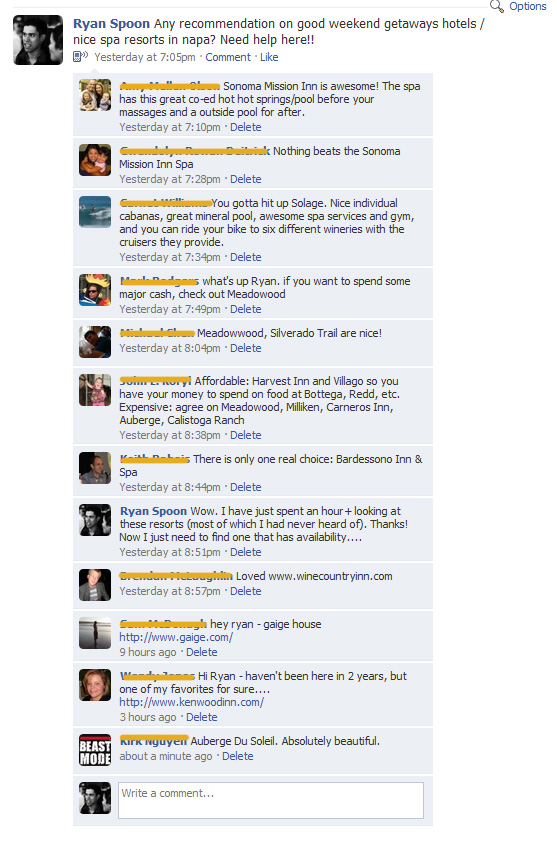It's no surprise that social recommendations work - they are based on connections, shared interests, references, etc. I've written many times that I believe conversation - enabling it, aggregating it, filtering it and applying authority / relevancy - is where the real-time-web's great value is derived. An example from last night that: - proves the power of network-based sourcing (and demonstrates the size and robustness of Facebook) - validates the missions of certain companies (like Aardvark for instance) - likely frightens players in the recommendation space who are not innovating - and raises a series of other questions (more below)
Last night, in a bit of a scheduling bind, I was trying to secure a nice Napa hotel for a post-wedding weekend getaway (between our belated honeymoon later in the year). After spending a few moments unsuccessfully researching highly rated hotels online... I found nothing. After calling a couple friends directly, I still had no leads. So I posed the question on Facebook and received 10+ lengthy, trusted responses in a couple hours. The quality of the responses far exceeded anything I found online because it came from trusted sources, was articulate, qualified and timely.
The questions out of this experience: - in which verticals does it work and, depending on the space, how does the depth of experience change? - how can this content be archived and search? - if this list is truly better than Citysearch's Top 10 Guide - how can is it made available in relevant ways outside of my network? - can Facebook Connect enable the same experience and quality for sites off-Facebook? - what role does Twitter play a role here considering that it is a public network?

